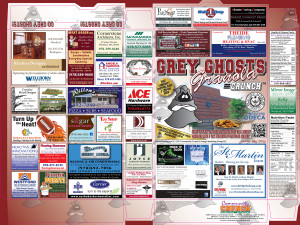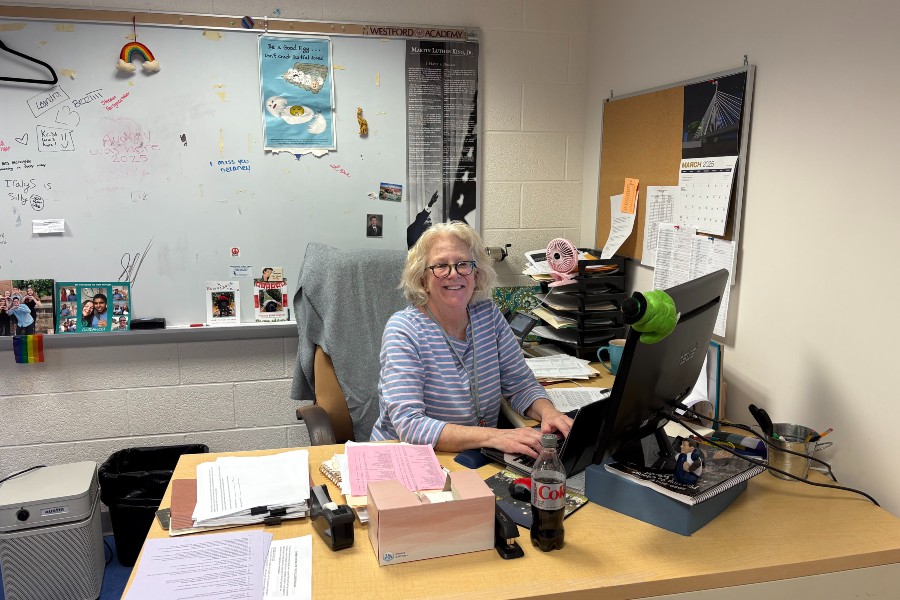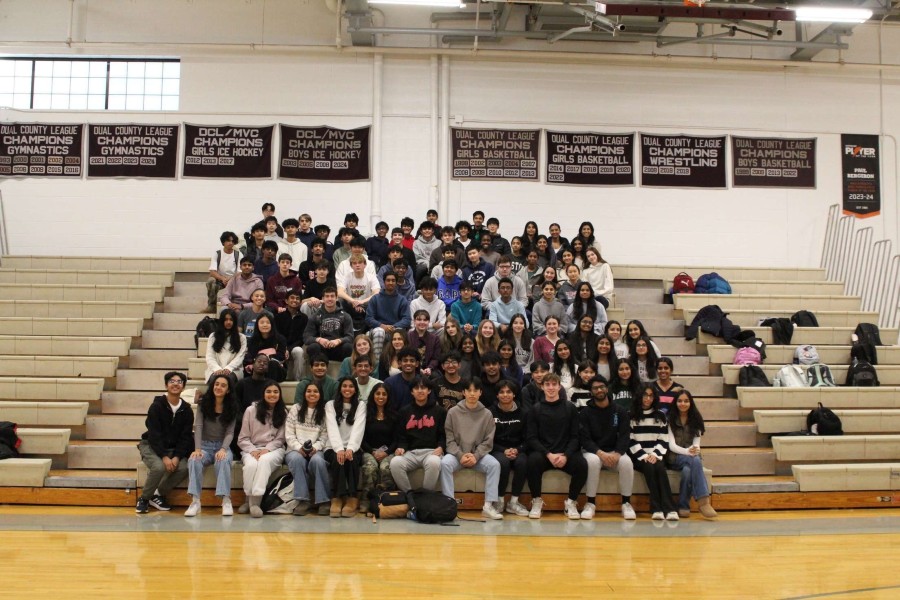
By Jenny Watts
Staff Writer
Sure, everybody’s heard of DECA. But how many students actually know what it is?
The Distributive Education Club of America is a huge part of Westford Academy, and with 266 members school wide, it has become not only the largest club in the school, but the largest club in the state.
Westford Academy business teacher John Rogers is the club’s administrator. Together, he and Adam Gagne help coordinate, train, and teach DECA’s members all they need to know for their competitions.
The DECA competitions run throughout the year, starting first with Districts in Chelmsford, then States in Boston, and finally Nationals, which this year will be held in Anaheim, California.
The competitions consist of a general business knowledge test, and then move on to a roleplay where the students present a general business idea to a judge. Afterwards, the judges rank the presentations. The top three or four move on to the next competition, eventually leading up to Nationals.
“Our kids usually sweep events. They’ve switched us to different districts because we’re too competitive,” said Rogers. “We had twenty-six kids make it to Nationals last year.”
Junior Haley Doucette stood up in front of thousands of kids on the DECA stage last year for the first time. She placed tenth in her competition, which according to Mr. Rogers, is an impressive feat.
“It was a great presentation. I use it as a sample to show other kids what she can do,” said Rogers
In additions to competitions, DECA has been known school wide for its annual fundraisers. Such events include the Halloween Dance, hiring a hypnotist or comedian, and the Holiday Bazaar.
Although Rogers was hoping for a good turnout this year, the Halloween dance had to be canceled due to extremely low ticket sales.
“Every year is different. One year we has one thousand kids, and last year we had a snow storm so it got cancelled. We had sold 350 tickets up to that point, which was better than any other of the dances,” said Rogers.
DECA hopes to make up for the money lost from the dance by selling their new signature cereal, “Grey Ghost Granola Crunch.” The box features several ads for local businesses. Inside it includes both health-food granola cereal, and a pamphlet of ads promoting local business.
The fundraising from the cereal goes straight towards paying for the DECA program, and whoever sells the most boxes will receive a scholarship.
“We’re not selling the cereal so much as [the students] are helping the local businesses and high school kids,” said Rogers.
Students join DECA as a way to learn and act professionally, attain world skills, and improve their critical thinking.
“I’m proud of the kids… they work hard, and the kids that work hard go places,” said Rogers.






